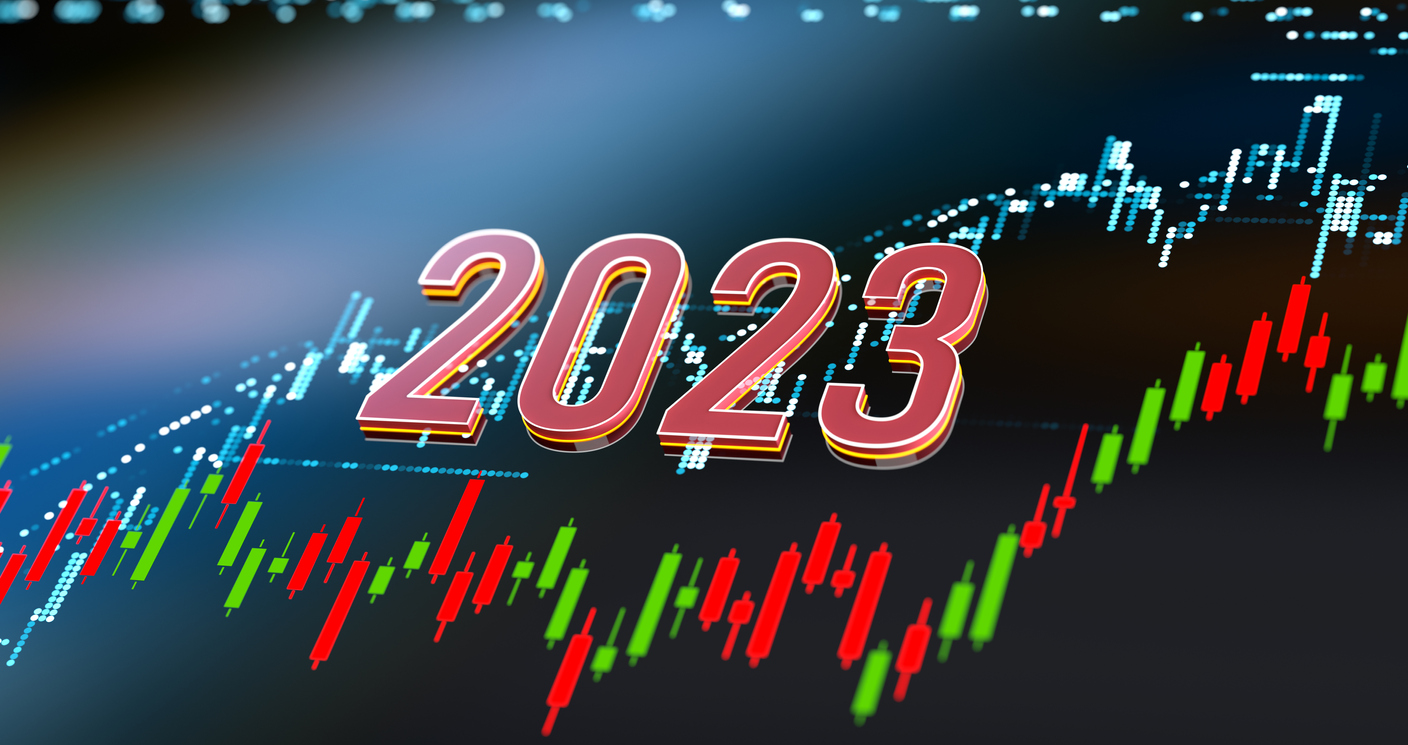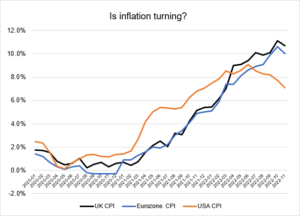
Inflation surged in 2022, but can it reverse in 2023?

Source: ONS, Eurostat, BLS.
Forecasters of inflation were way off target for 2022. For example:
- In December 2021, the Bank of England’s Monetary Policy Committee said “CPI inflation was expected to remain around 5% through the majority of the winter period, and peak at around 6% in April 2022”.
- Two months earlier, the Office for Budget Responsibility (OBR) in its Economic and Fiscal Outlook said “News since we closed our forecast would be consistent with inflation peaking at close to 5% next year. And it could hit the highest rate seen in the UK for three decades”.
The OBR was a decade out. At the time of writing, it looks as if the peak 2022 reading for UK CPI inflation was October’s 11.1% – the highest for 41 years according to the Office for National Statistics. Is that the peak for this inflationary cycle, as the data in the graph above hints?
The good news is that, as of now, inflation does look set to drop. Some of that is down to what economists call the ‘base effect’. Annual inflation is the difference between prices, 12 months apart, so each new month’s inflation calculation loses the oldest month of data which is replaced by the latest month. If the month that disappears was one in which there was an inflation spike and the new month is spike free, then inflation falls.
For example, in the month of April 2022, prices rose by 2.5% because of the utility price cap increase. If April 2023 sees monthly price rises of a still high 1.0%, then annual inflation will drop by 1.5% (2.5% – 1.0%).
Some commodity and service prices have already fallen from the highs created by Covid-19 supply issues and/or the Ukraine war and these drops will work through to domestic inflation. For example, by mid-December the price of wheat had almost halved from its February peak. Shipping costs have also fallen dramatically from their 2022 highs.
One point to remember is that a falling inflation rate does not mean overall prices are falling, so your financial planning may well need a review to take account of the damage inflicted by 2022’s CPI.
If you would like more information on the above, please speak to one of our experienced advisers here.
The value of investments and the income they produce can fall as well as rise. You may get back less than you invested. Past performance is not a reliable indicator of future performance. Investing in stocks and shares should be regarded as a long term investment and should fit in with your overall attitude to risk and your financial circumstance.





